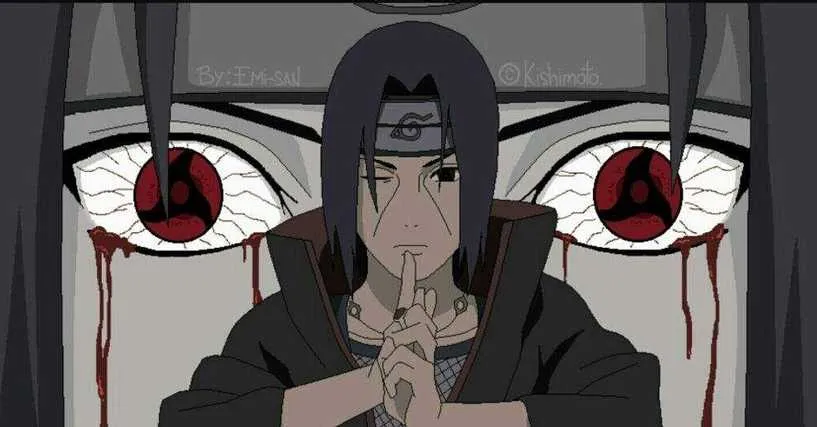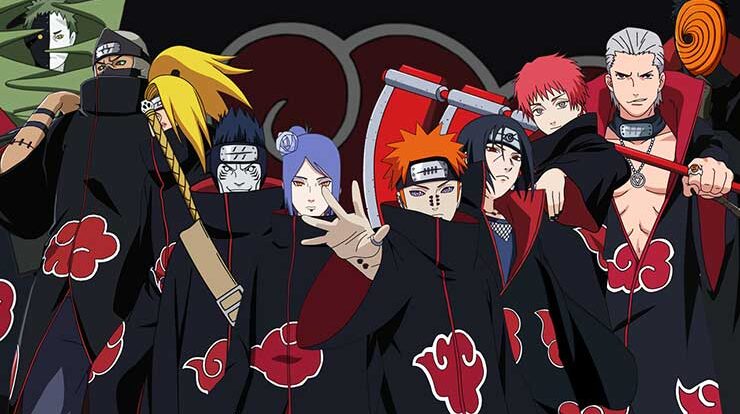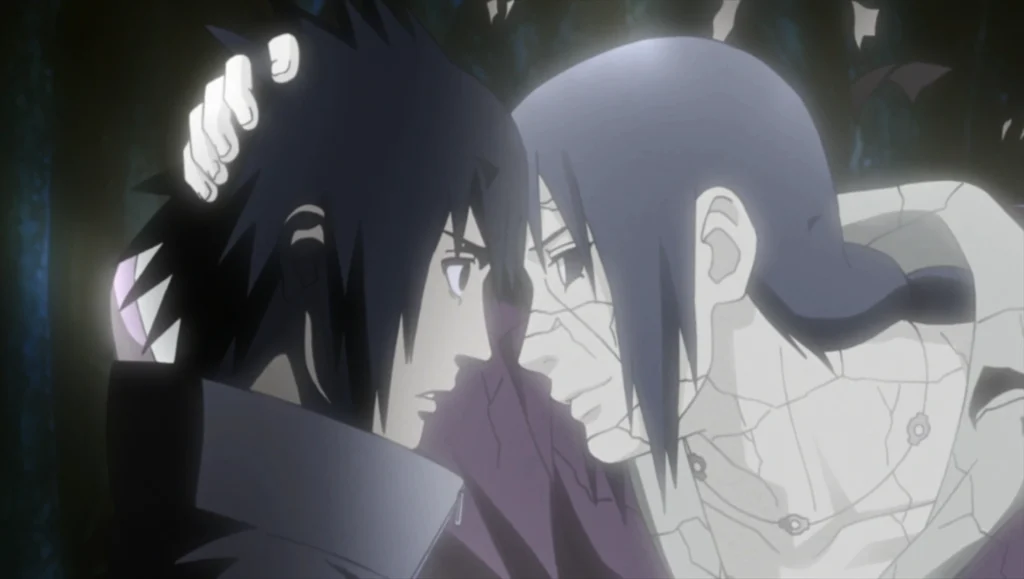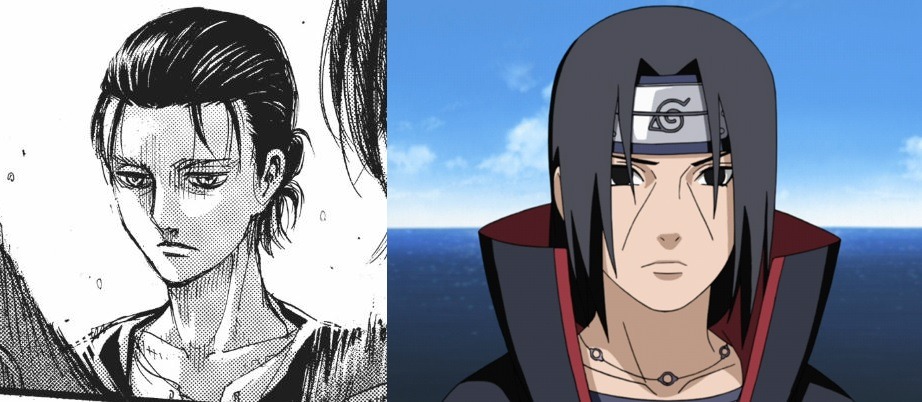By Penny Theodorakopoulou,
As almost every anime fan probably knows, Attack on Titan (2013-) has ended — at least for this year. Leaving its viewers at a quite significant moment in the plot of the anime, we have to wait for approximately one year (or perhaps more) for Attack on Titan: The Final Season Part 3, which was announced shortly after the release of the last episode of Attack on Titan: The Final Season Part 2.
However, the subject of this article is not about AoT — at least not completely.
Even though to a plethora of people anime might seem childish and that they have nothing to teach the viewer, I and every fellow anime enjoyer say that that claim is false. Sure, there are anime that are goofy, funny, or scary, but there are also anime that have deep philosophical thoughts. Two great examples are Attack on Titan (the philosophy of the ethics of human existence and freedom) and Naruto Shippuden (2007-2017), with both of them being extremely popular even among non-anime watchers — especially the latter.
To make a long story short, the plot of Naruto Shippuden is the continuation of Naruto (2002-2007), where we see young Naruto doing anything in his power to make his dream come true: to become Hokage of the Hidden Leaf Village one day. Numerous events and occasions take place in both Naruto and Naruto Shippuden; however, one of the most popular arcs of the series was definitely the one regarding the backstory of one of the most philosophical anime characters ever: Itachi Uchiha.

Itachi Uchiha: The child who sacrificed himself to solve adults’ problems
Itachi was the elder brother of Sasuke Uchiha, one of the main protagonists of the story of Naruto, and a member of the Uchiha Clan from the village of Konohagakure (or Konoha for short). He grew up as the Uchiha clan’s child prodigy, setting standards for Sasuke and future Uchiha to follow. His early youth was blighted by conflict, which drove him to pursue peace at any cost. Itachi became a double agent to assist Konoha with intelligence on his clan’s movements after learning that his clan was preparing a coup d’état to seize control of Konoha, after being wrongfully accused of invading the village with Kurama, the Nine-Tails Beast.
As a result, Itachi began to alienate himself from his clan, as some suspected him of murdering his best friend, Shisui Uchiha, in order to get a Mangekyō Sharingan. Since he possesses the capacity to subtly manipulate people, Shisui was terminally wounded by Danzo but entrusted Itachi with his remaining eye to seek peace. Itachi eventually slaughtered his whole clan, except Sasuke, after being forced by Danzo, who promised him to spare the life of his young brother.
Itachi left the village with Konoha’s Third Hokage, Hiruzen Sarutobi, vowing to do everything he can to watch after Sasuke, after building the façade he made, in thoughts that the incident would give Sasuke the attitude to grow strong enough to kill him, once he was old enough. Itachi also threatened Danzo with revealing the truth about the incident if he ever attacks Sasuke.
Itachi soon joined the Akatsuki to protect his village from the shadows, ensuring that Konoha was not jeopardized. Itachi made excellent friends with his partner, Kisame Hoshigaki, as a result of this, and Kisame was concerned about Itachi’s well-being. Itachi began to suffer from a disease as a result of his usage of the Mangekyō Sharingan, which he attempted to hold at bay until Sasuke was ready to kill him.

Itachi remained on the sidelines until learning that Sasuke had finally severed his ties to Orochimaru, having absorbed him and now becoming strong enough to settle things. In Part II, having a clone of himself created to hold off Naruto and the rest of his team, Itachi and the other Akatsuki members seal Shukaku, the One-Tail Beast. Later on, he met Naruto prior to his confrontation with Sasuke and, after questioning his motives to save Sasuke, provided Naruto with a crow equipped with Shisui Uchiha’s Sharingan as a countermeasure against Sasuke, were he to achieve his Eternal Mangekyō Sharingan and attack Konoha.
Sasuke eventually found him and the two brothers fought in their last battle, during which Itachi utilized his Mangekyō Sharingan to test Sasuke’s limitations. While fighting, Orochimaru was extracted from Sasuke’s body as a result, and Itachi sealed him away with his Susano’o before succumbing to his sickness. Itachi implanted his Amaterasu technique inside Sasuke as his dying deed, ostensibly as a protection device that would kill Tobi if he ever harmed Sasuke.
Unfortunately, Tobi disclosed the truth about Itachi’s deeds to Sasuke as he plotted to destroy Konoha, finally implanting his brother’s Mangekyō Sharingan on him. Itachi reappeared during the Fourth Great Ninja War, summoned by Kabuto Yakushi using the Reanimation Jutsu, a banned summoning Jutsu that resurrects the dead as immortal corpses, to fight alongside Tobi. Itachi learned of his brother’s plans when paired with Nagato and was compelled to face Naruto and Killer Bee without his will. He summoned the crow he had given to Naruto to recover his free will.
After Itachi sealed Nagato, he set out to stop Kabuto, where he met Sasuke, with whom he teamed up to fight him, with his younger brother eager to learn the truth once the battle would be finished. Itachi was compelled to use Izanami to lock Kabuto in an everlasting time-loop with his mind in order to shatter his Jutsu after a long struggle. With his soul beginning to fade, Itachi used his Sharingan to project his memories onto Sasuke, telling him the full story of the events leading up to the Uchiha Clan Massacre, while also telling him that he did not have to forgive him and that he would always love him, no matter what decision he made from that point on.

Eren Jaeger vs Itachi Uchiha: Who is the “villain”?
From my previous article, in which we discussed Eren Jaeger’s perspective of freedom and how he would literally do anything in his power to attain it (as we all saw in the last episode of AoT: The Final Season Part 2), we can safely claim that Eren is not the traditional utilitarian, always according to John Stuart Mill and Jeremy Bentham’s utilitarianism.
As I have mentioned in the past, utilitarianism is a moral philosophy that promotes activities that bring happiness or pleasure while opposing actions that bring misery or damage. A utilitarian ideology would seek the welfare of society as a whole while making social, economic, or political decisions. According to utilitarianism, an activity is justified if it leads to the happiness of the largest number of individuals in a community or group; so, basically, the definition of utilitarianism is how one can benefit the majority of people by trying to attain their happiness.

Naturally, the following question derives from what we have said so far: who is the true utilitarian? By definition, it would be Itachi. For the sake of his village, he massacred his entire clan except for Sasuke, in order to put an end to the conflict the Uchihas and the Senjus had. He was sort of forced by Danzo, yes; but in the end, it was Itachi’s choice whether he would comply with Danzo’s proposition or not. So, Itachi deliberately chose to kill his friends, relatives, and neighbors in the name of peace.
Eren, on the other hand, as we know from both the manga and the anime, has “chosen” to sacrifice the rest of the world for the sake of his own people — even if that means killing 80% of the global population — in the name of freedom.
Those two bold phrases mark the stark difference between the two characters. Itachi did not want any more conflict, so he chose the “lesser evil” way, as we learn from Immanuel Kant: the death of his own family by his own hands. In contradiction to Itachi’s point of view, Eren “chose” to fight the rest of the world because his people have been living in constant fear for hundreds of years for their lives, because of the existence of the Titans; and I am saying “chose”, because it was not really an option of his, due to the fact that, when he kissed Historia’s hand on the day on her coronation, he saw the future and what was lying ahead. Therefore, he too chose the “lesser evil”, in order to liberate not himself, but the people who live on Paradis Island.

To conclude and to answer the question of the article, according to the definition we gave above regarding utilitarianism, Itachi is considered “more of a utilitarian” than Eren, for the sole reason that he managed to make more people happy than sad — it was really Sasuke’s happiness as the only survivor against Konoha’s happiness and eudaemonia (Aristotle). Nevertheless, in the end, it is all a matter of spectrum and viewpoint. One might be in favor of Itachi’s actions and consider him a hero and not a villain; and one might consider Eren as the number one antagonist in anime history, as well as compare him to MCU’s Thanos, who killed half of the global population of the galaxy, due to shortage of natural resources. One thing is for certain, though. Both Eren Jaeger and Itachi Uchiha killed millions and dozens of people correspondingly for what they believed in; and that, as far as I am concerned, is remarkable.
References
- Utilitarianism, wikipedia.org, Available here
- Naruto: Itachi’s Betrayal & Uchiha Backstory Explained, screenrant.com, Available here
- What are the similarities between Itachi and Eren?, quora.com, Available here
- Is Eren doing the Itachi method?, tumblr.com, Available here
- What is the psychology and philosophy of Eren Yeager in the Attack on Titan manga?, quora.com, Available here
- What can we learn from Itachi when it comes to his philosophy or his character in general?, quora.com, Available here




